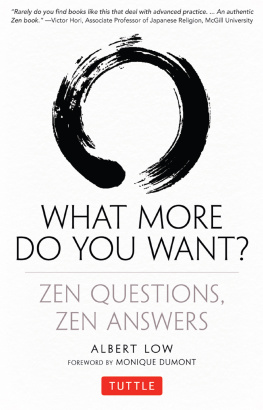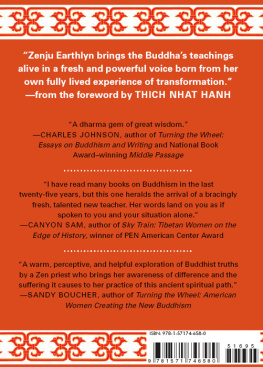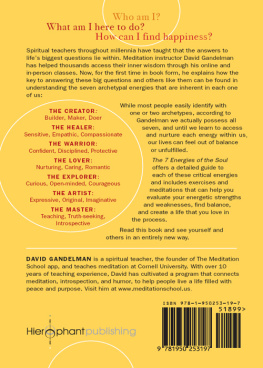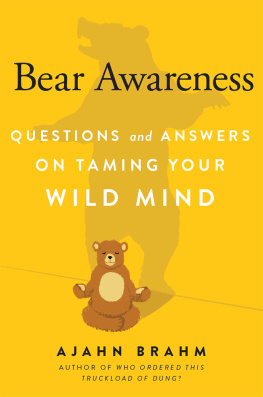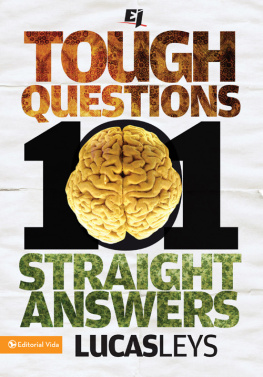Questions in the Sand
Buddhist Questions and Answers
David Brazier
Previous books by David Brazier
A Guide to Psychodrama
Beyond Carl Rogers:
Towards a psychotherapy for the 21 st century
Zen Therapy
The Feeling Buddha
The New Buddhism
Who Loves Dies Well
Her Mother's Eyes and Other Poems
Love and its Disappointment:
the meaning of life, therapy and art
Not Everything is Impermanent
Buddhism is a Religion
Questions in the Sand
Buddhist Questions and Answers
David Brazier
Questions in the Sand
Paperback ISBN: 978-0-9931317-2-1
Published by Woodsmoke Press 2017
Copyright 2017 David Brazier
David Brazier asserts the moral right to be identified as the author of this work.
All rights reserved.
Cover photograph by Sanghamitra Adrian Thompson
Woodsmoke Press
Amida Mandala Buddhist Temple
Malvern
WR14 4AA
kaspa@woodsmokepress.com
www.woodsmokepress.com
To the Sangha
Preface
When I read the Suttas and Sutras which record the Buddhas teaching, one thing that stands out is how many teachings are given in response to questions. Someone appears before the Buddha with a spiritual dilemma, a burning question, a plea for their suffering to end, and the Buddha makes a compassionate response, guiding them towards insight and a growing faith in things beyond the selfish mind. Many of his responses come back to the same themes: karma, dependent origination, The Four Noble Truths and so on. There is a doctrinal thread that runs through the answers of the Buddha, and beyond that doctrinal thread there is a spirit of being in relationship to others and of living the spiritual life that shines through whatever the answer. What is this spirit? Compassion, wisdom, accepting each person that brings a question, loving each person that brings a question.
The same is true of the answers that Dharmavidya gives in this volume. Many of his answers come back to the same teachings and themes: the importance of faith, the complexity and foolishness of human beings, the profound experience of a foolish being meeting the light of the Buddha. The answers show Dharmavidyas deep understanding of the teachings, his intelligent mind, his breadth of knowledge, but more importantly they show compassion and kindness to each questioner. The light of the dharma shines from every page.
I have been a disciple of Dharmavidyas for eleven years. He reflects the light of the Buddha like the dewdrop reflecting the moon that Dogen writes about in Genjokoan. The dewdrop is full of the moon, and yet it is not the moon, it retains its dewdrop nature, just as we retain our human nature. Dharmavidya reflects the perfect light, and retains his human nature. In this he embodies the great wisdom of Pureland Buddhism: whatever we are tangled up in, whatever our karmic state, the moon is always shining and all we have to do is turn towards it.
These are all questions that have been written to Dharmavidya over the years. Some of the questions here appear universal; questions that we will all recognise. Some appear to be more idiosyncratic; they seem to speak to just one persons koan. But one translation of the word koan is universal case, and however personal these questions seem, there is something we can learn from each of them.
Questions in the Sand was the title of the blog where these questions and answers were originally published. When I think of the title I imagine the tide washing over the beach and smoothing out the sand in which our heartfelt questions have been written. This image serves as a nice counterpoint to the care and attention Dharmavidya has given each question here. On the one hand they are deeply important. On the other hand they are ephemeral and impermanent. It also brings to mind how each answer points us towards reality. The question is written in the sand, and the answer is the sea sweeping over it, and the birds and the sky and the sunshine.
Throughout my time putting this book together my gratitude for my teacher and for his teachers has been increasing and increasing. I have found a wealth of Dharma gems here, and I hope you are able to see them shining too.
Namo Amida Bu
Kaspalita Thompson
Contents
Why Buddhism?
Question : What is Buddhism and why be a Buddhist?
Short answer : It is one of the best commitments you can make in this life.
Longer answer : Buddhism is the spiritual tradition that derives from the teachings of the sage Shakyamuni Gotama who lived in India 2500 years ago. He, however, declared that the wisdom that he was spreading did not start with himself. He awakened to it and invites us to do likewise and put our trust in that perennial wisdom. Buddhism is, therefore, a path of awakening. To be a Buddhist, one has to have some faith in such awakening, yet it is actually a life of faith that one awakens to.
Let us look at this a different way. The disease of everyday life is the over-estimation of self. We all go around acting as if oneself is far more important than is objectively the case. This is just as much true if one considers oneself a victim as when one is self-confident and assertive. Everything we see, hear, encounter in any way, we distort by the powerful force of self-bias. Thus, Buddhist awakening has much to do with relinquishing self and its concomitant grasping, clinging, neediness, hidden agendas, and manipulation. However, if one seriously does this, then upon what is one going to base one's life? Generally people use the claims of the ego as their compass. If you throw that away, you enter an open field with many possibilities. It takes great faith to do that.
In fact, one has to replace the faith in ego with something and in Buddhism we replace it with Taking Refuge in Buddha, Dharma and Sangha. All the rest of Buddhism is really a matter of exploring and unpacking what this means. What is Buddha? What is Dharma? What is Sangha? What is implied by relying upon them? What kinds of conduct, thought, view, concepts, effort, image and so on are entailed? Buddhism is a religion, which means that it has many dimensions personal, cultural, spiritual, artistic, and so on. It has given rise to whole civilisations. It cannot be reduced to a single technique or idea. In fact, it implies a resistance to the kind of reductionism that is common in our modern culture. Buddhism is not just an add on it implies a shift in the fundamental paradigm that rules one's life.
I became Buddhist because I had had spiritual experiences and was seeking an explanation. Read in that context, Buddhism made sense of things that were hard to make sense of by other approaches. Buddhism also offered a philosophy of peace, both personal and in the world. The world needs an approach that gives spiritual depth to life and spreads peace. Buddhism teaches generosity, gratitude, energy, patience, and a brand of wisdom that never ceases to push one further and further beyond one's current certainties. I have been involved in it for half a century now and it still challenges me. I'm a free thinker and Buddhism encourages my investigations. It provides me with useful tools for exploring the spiritual world and does not confine me in a straitjacket.
As Pureland Buddhists we have, in the Larger Pureland Sutra, a vista that gives meaning to life on a vast scale, a manifesto for a more perfect world both here and hereafter, and a simple practice that is suitable for anybody, that can be a medium for spiritual development and exploration and is as suitable for the most ordinary person as it is for the saint or hero more so in fact. I don't know a better vehicle.


